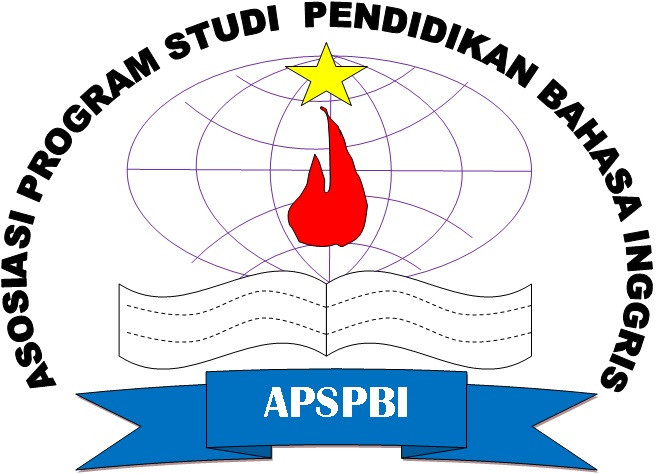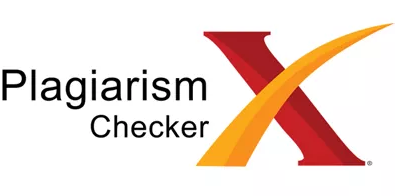Exploring English Language Teaching Method of the Second Grade Students at SMA MBS Yogyakarta
Abstract
The purposes of this study are: 1) to find out the method to teach English subject at SMA MBS Yogyakarta. 2) to find out the different method employed by English teachers in teaching English subject. 3) to find out the difficulties faced by the English teachers in teaching English subject. The design of this study is descriptive qualitative research. The object of this study is all of English teachers of the second grade students. The data was taken from interviews and classroom observations. In the data analysis techniques, the results of interviews with all of English teachers are grouped into the observed topic. The result of this study shows that the method used by English teachers in teaching English subject is the eclectic method. There are no different methods in teaching English subject. The difficulties encountered by the English teachers in teaching English subject include classroom management, and limited learning sources.
Keywords
Full Text:
PDFReferences
AL- Hamash I. K. and Younis, H. (1985). Principles and Techniques of Teaching English as a second language. Bagdad: Alshaay Press.
Bell, D. (2007). Do teachers think that methods are dead?. ELT Journal, Vol. 61. pp.135-143.
Brown, H. D. (2001). Teaching by Principles: An Interactive Approach to Language Pedagogy. San Francisco State University: Longman.
Brown, H. D. (2007). Principles of Language Learning and Teaching. United states of America: Pearson education.
Fatiloro, O. F. (2015). Tackling the Challenges of Teaching English Language as Second Language (ESL) In Nigeria. Journal of Research & Method in Education, Vol. 5. pp. 26-30.
Gao, L. (2011). Eclecticism or Principled Eclecticism. Journal of scientific research, Vol. 2. pp. 363-369.
Garton, S., Copland, F & Burns, A. (2014). Challenges in teaching English to young learners: Global perspectives and local realities. TESOL Quarterly, Vol. 48. pp.758-762.
Ghavifekr, S. (2015). Teaching and Learning with Technology: Effectiveness of ICT Integration in Schools. International Journal of Research in Education and Science, Vol. 1. pp. 175-191.
Harmer, J. (2001). The Practice of English Language Teaching. New York: Longman.
Harmer, J. (2003). The Practice of English Language Teaching Third Edition Completely Revised and Updated. Malaysia: Longman.
Hershner, S & Chervin, R. (2014). Causes and consequences of sleepiness among college students. Journal of Nature and Science of Sleep, Vol. 6. pp. 73-84.
Herrmann, P, & Sechrist. (2018). College Students’ Sleep Habits and Their Perceptions Regarding Its Effects on Quality of Life. International Journal of Studies in Nursing, Vol. 3. pp. 7-13.
Iscan, A. (2017). The Use of Eclectic Method in Teaching Turkish to Foreign Students. Journal of Education and Practice, Vol. 8. pp. 149-153.
Jebiwot, C, & Kipkemboi. (2016). Role of the Eclectic Method in Teaching and Learning English in Public Primary Schools, in Eldoret East Sub County, Kenya. Journal of Literature, Languages and Linguistics, Vol. 25. pp. 73-83.
Kumar, C. P. (2013). The Eclectic Method- Theory and Its Application to the Learning of English. International Journal of Scientific and Research Publications, Vol. 3. pp. 1-4.
Leni, M. (2013). Learning English as Foreign Language in Indonesia through English Children’s Literature. The International Journal of Literacies. Vol 19. pp. 41-50.
Mack N Woodsong C, and MacQueen K. (2005). Qualitative Research Methods: A Data Collector’s Field Guide. United States of America: Family Health International.
Miles, M. B. and Huberman, A.M. (1994). Qualitative Data Analysis. United States of America: Thousand Oaks.
Moleong, L. J. (2017). Metodology Penelitian Kualitatif. Bandung: PT Remaja Rosdakarya.
Mwanza, D. S. (2017). The Eclectic Approach to Language Teaching: Its Conceptialisation and Misconceptions. International Journal of Humanities Social Sciences and Education, Vol. 4. pp. 53-67.
Nenden S. L. (2005). EFL Teachers’ Competence in the Context of English Curriculum 2004: Implication for EFL Teacher Education. TEFLIN Journal, Vol.16. pp 79 –92.
Okongo, R. B. (2015). Effect of Availability of Teaching and Learning Resources on the Implementation of Inclusive Education in Pre-School Centers in Nyamira North Sub-County, Nyamira County, Kenya. Journal of Education and Practice, Vol. 6. pp. 132-141.
Richards J. C., and Rodgers, T.S. (2001). Approaches and Methods in Language Teaching. United States of America: Cambridge University Press.
Sieberer-Nagler, K. (2015). Effective Classroom-Management & Positive Teaching. Journal of English Language Teaching, Vol. 9. pp. 163-172.
Songbatumis, A. M. (2017). Challenges in Teaching English Faced by English Teachers at MTsN Taliwang, Indonesia. Journal of Foreign Language Teaching & Learning, Vol. 2. pp. 54-67.
DOI: https://doi.org/10.31002/metathesis.v3i2.1399
Refbacks
- There are currently no refbacks.

This work is licensed under a Creative Commons Attribution-ShareAlike 4.0 International License.
Metathesis: Journal of English Language, Literature, and Teaching is published by English Education Department, Faculty of Teacher Training and Education, Universitas Tidar, Magelang, Indonesia in collaboration with Asosiasi Program Studi Pendidikan Bahasa Inggris Se-Indonesia (APSPBI)
ISSN: 2580-2712 (print) and 2580-2720 (online)
Jalan Kapten Suparman 39 Magelang, Jawa Tengah, Indonesia 56116
Phone (0293) 364113 Fax (0293) 362438













